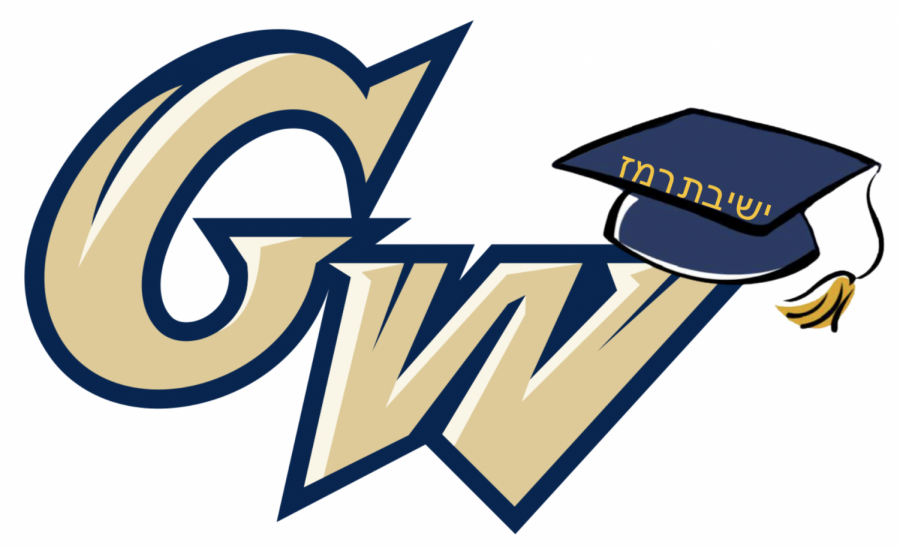ALMA MATTERS: From Ramaz to GW: Oliver Rein ’19
Oliver Rein ’19 is a sophomore at George Washington University (GW). He is majoring in international affairs with a concentration in security policy because he would like to learn more about the many global issues that are facing the United States today. Rein is enjoying the opportunities that Washington D.C. has to offer. A former captain of the Ramaz Mock Trial Team, he is now a member of Strategic Crisis Simulations (SCS) and is grateful to the Ramaz teachers who pushed him to grow his public speaking skills.
Charles Spielfogel: Why did you choose GW?
Oliver Rein: GW offers an unparalleled experience for college students looking to study a whole range of subjects. It’s location in the heart of D.C. gives students interested in gaining a more global perspective on current events and challenges an opportunity to get involved.
CS: Are you still in touch with your high school friends?
OR: Yes, I’ve been fortunate to keep in touch with many of my closest friends from Ramaz and, thanks to the vast Ramaz alumni network, I’ve even been able to meet new people who graduated from Ramaz before me.
CS: What activities are you involved in on campus?
OR: GW has lots of political clubs and activities which I enjoy being a part of. One club I really enjoy is Strategic Crisis Simulations (SCS). SCS is a student-run organization where you study either an ongoing or manufactured international crisis, which could involve competing foreign policy interests, international security, emergency management, or humanitarian issues, and then spend a day acting as a policymaker or delegate representing either a state, NGO, or some other actor. The simulations incorporate many different fields which we learn about in class including diplomacy, military, intelligence, and humanitarianism. Of course, I also attend the Chabad regularly.
CS: What is the Jewish Community like at GW?
OR: Thankfully, it’s very easy to meet fellow Jews at GW. We have a Chabad with a really friendly Rabbi and there’s also a Hillel which is currently being relocated into a brand new building.
CS: Do you find the Jewish community is separated by religious affiliation?
OR: Nobody is ostracized on the basis of their religious affiliations, but it can be harder to meet Jewish students who don’t attend Jewish functions.
CS: What are the benefits to being in Washington D.C.?
OR: Being in Washington D.C. gives you a college experience like none other. In my first semester alone, I was able to attend speeches and ask questions to high-level Washington officials like former Ambassador Nikki Haley, former Secretary of the Navy Richard Spencer, former FBI Director James Comey, and loads more. There are also incredible internship opportunities for students (I know someone who interned for the Secret Service last year), as well as lots of advisors who are happy to help you with your resume and cover letter.
CS: Do you live on campus? How often do you leave campus?
OR: This semester, I’m living at home due to Covid restrictions. However, next semester I plan to move back there. One of the benefits to GW’s campus is that it’s built into the greater D.C. community (kind of like NYU) which makes it really easy to explore all the different sites and monuments throughout the district. For example, my freshman year I was living less than five blocks away from the White House. There’s also electric scooters everywhere that you can unlock and rent with your phone, which makes travel a lot more fun.
CS: How has Covid affected your college experience?
OR: Because of Covid, most students are living at home this year and classes are completely online. This has made it more difficult to meet new people, keep in touch with old friends, and to establish good relationships with professors. Hopefully, GW will go back to normal soon.
CS: Did Ramaz help prepare you academically for GW?
OR: Yes, absolutely. Ramaz has excellent teachers and faculty members who do an excellent job at preparing students for college classes. Their academic standards and insights did a great job preparing me for the rigors of college. My transition to college was very smooth and I think a big part of that stems from the maturity and respect which students are treated with at Ramaz. Some students struggle to hold themselves accountable when they don’t have parents or teachers constantly monitoring them, but (in my experience) Ramaz teachers do a great job at teaching students the importance of personal responsibility and developing sensible young adults.
CS: Are there any specific values or skills that you learnt at Ramaz that you are finding particularly useful?
OR: Two skills I learned at Ramaz which I find particularly useful at school is critical thinking and public speaking. Critical thinking is something which I was fortunate to develop in the Ramaz classroom through lengthy (and occasionally heated) conversations with my peers and teachers. Whether it was a discussion over a certain sentence in the Talmud or event in history, the opportunity to openly share my opinion always enabled me to think more deeply about my point of view. I also would like to give a shoutout to Dr. Jucovy and the Ramaz Mock Trial team which taught me public speaking. Being able to express myself with respect and clarity has helped me navigate all sorts of difficult debates and discussions in college.
CS: Is there anything else you would like to share about your experience at GW with the students of Ramaz?
OR: If you’re interested in international relations, politics, or anything else going on in the world, I highly recommend taking a look at GW.



